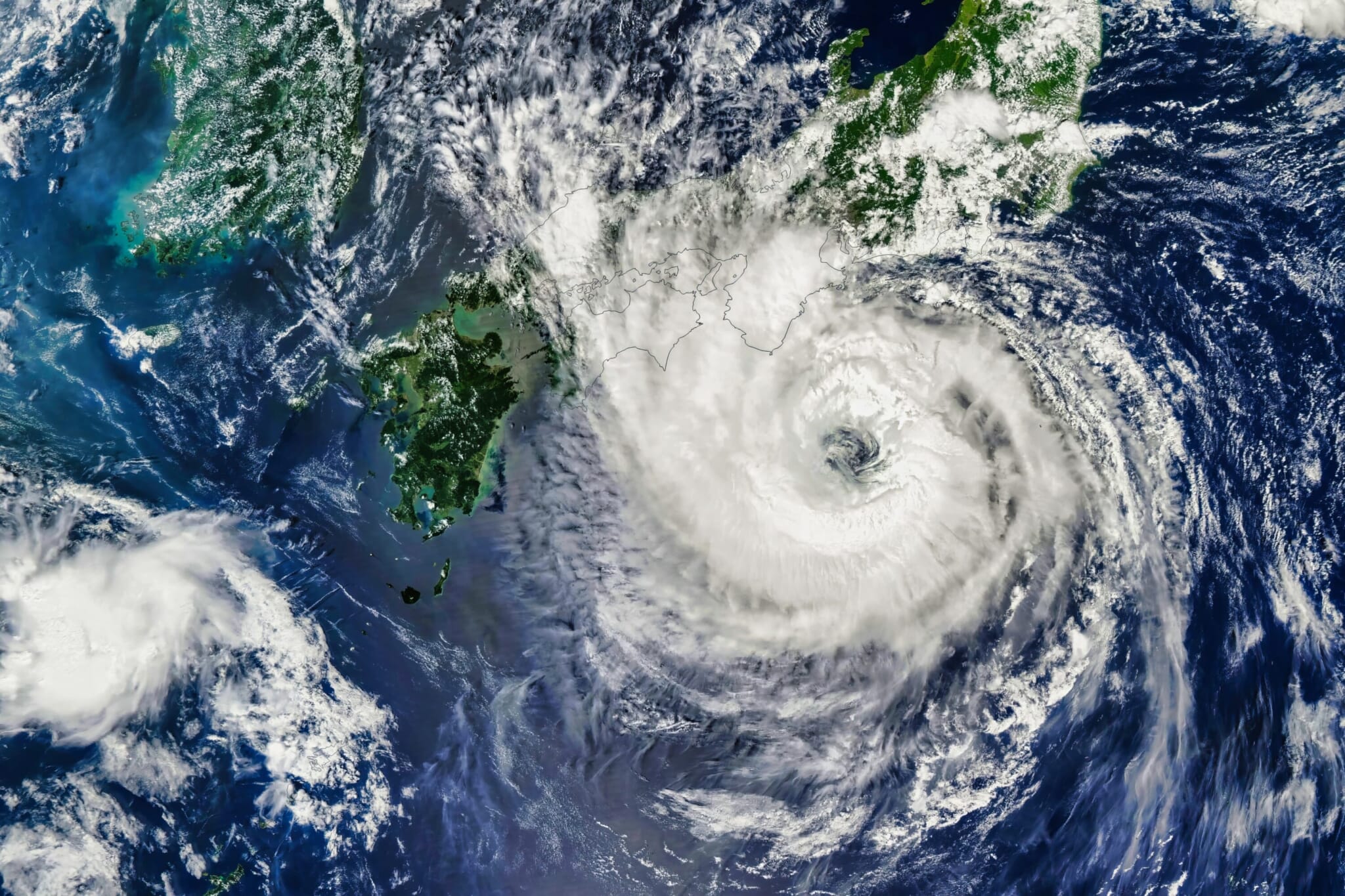In this week’s news roundup we have the latest on Typhoon Ampil and the government’s megaquake advisory. We also report on Fumio Kishida’s resignation and the visit to Yasukuni Shrine by three of his Cabinet members. In sport, we look back at the last three days of the Paris Olympics as Japan moved up to third in the medal table.
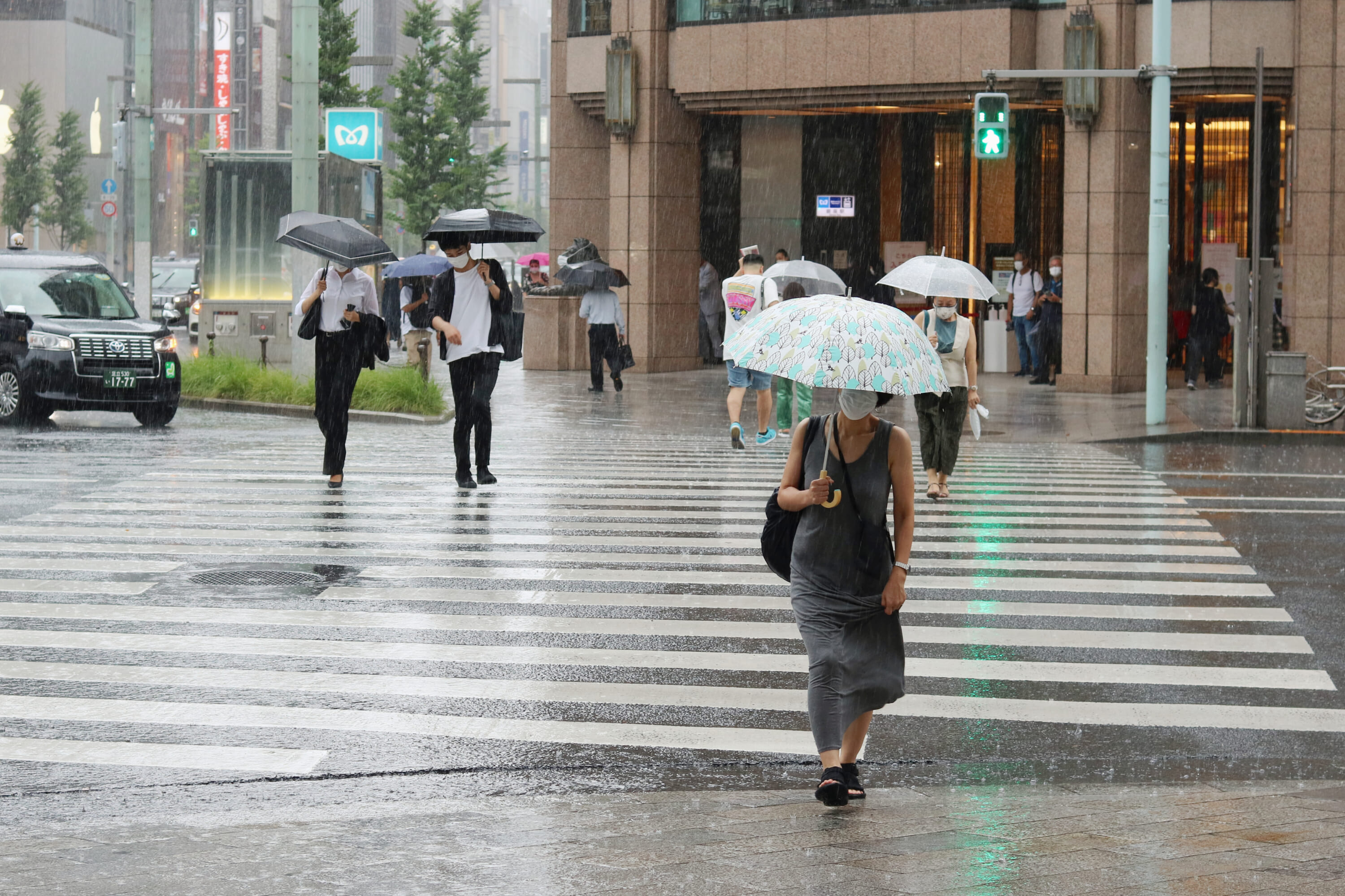
Typhoon Ampil Severely Disrupts Transport in Japan
On Friday morning, heavy rain and gale warnings were issued for the 23 wards of Tokyo. Alerts were also issued in various other regions, including in Fukushima and Chiba prefectures, as well as the Izu Islands. Typhoon Ampil has developed into a powerful storm as it approaches Kanto. According to Meteorological Agency officials, it was located 100 kilometers east of Hachijo Island in Tokyo earlier this morning. It’s reportedly moving north at 20 kilometers per hour. The agency added that it has an atmospheric pressure of 950 hectopascals at its center, with winds reaching up to 162 kilometers per hour.
Earlier in the week, JR Central announced that it would be suspending all Shinkansen services between Tokyo and Nagoya on August 16 due to Typhoon Ampil. As of 5 a.m. on Friday, there were no changes to that plan. A limited number of trains will be running from Nagoya to Shin-Osaka. JR East, meanwhile, is planning to cancel some services on the Tohoku, Joetsu, Hokuriku, Yamagata and Akita Shinkansen lines from 11 a.m. All Nippon Airways and Japan Airlines also informed passengers that hundreds of flights to and from Haneda and Narita airports will be delayed or canceled.
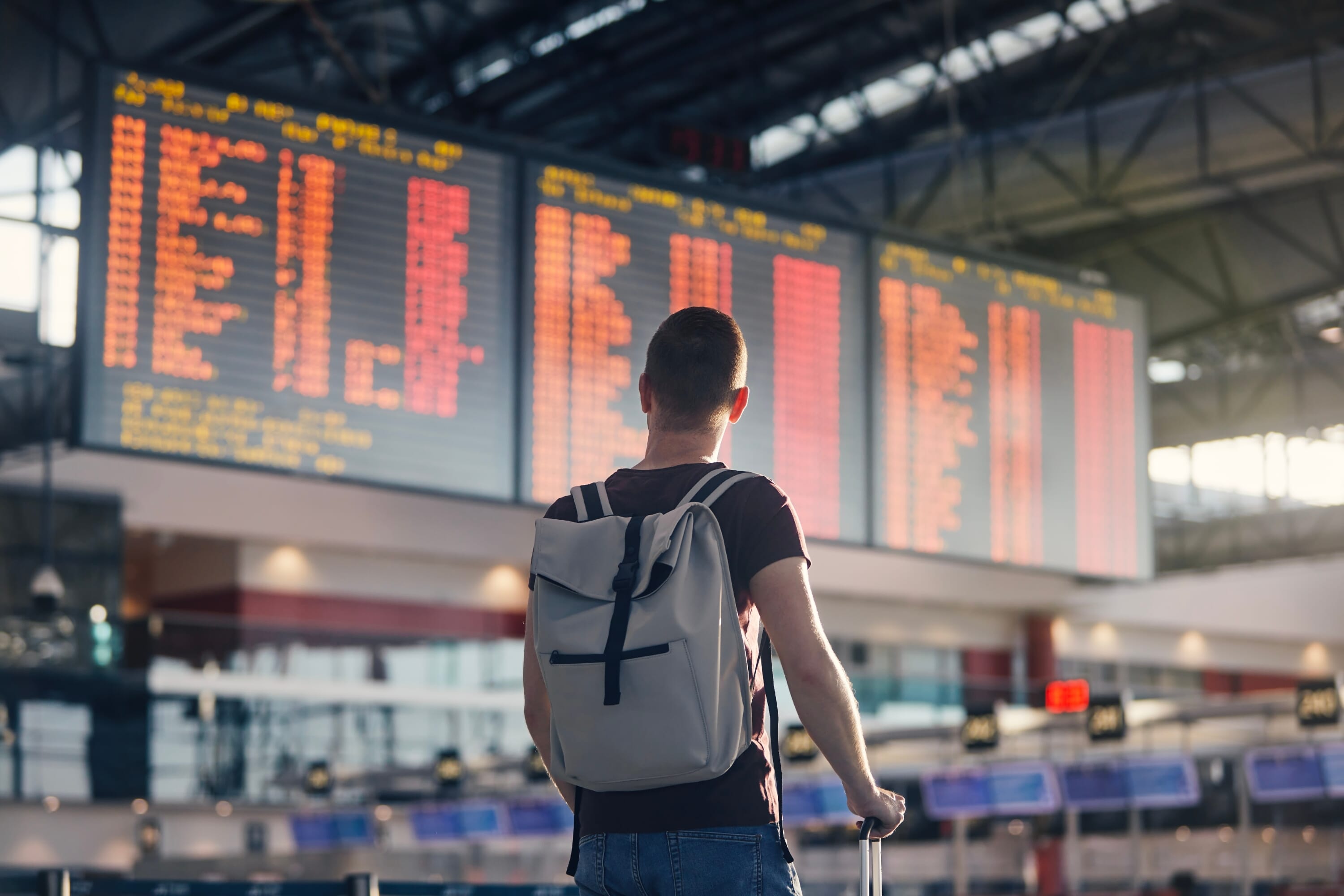
Japan Lifts Its Weeklong Megaquake Advisory
At 5.p.m on Thursday, the Japan Meteorological Agency announced the end of its advisory period for a megaquake striking in the Nankai Trough. It did, however, maintain that people should not lower their guards. The unprecedented alert was issued last Thursday after the magnitude 7.1 earthquake in Kyushu. People were asked to review routine earthquake preparedness and stay alert for a week. A day later, Sansuien, a ryokan in Kochi Prefecture, reported that around 450 guests had canceled their reservations. The 71st Yosakoi Festival kicked off that same day in the prefecture, with four teams dropping out.
In the coastal town of Shimoda, Shizuoka Prefecture, hotel and ryokan cancelations exceeded 550. Beaches were also closed in Shirahama, Wakayama Prefecture, and Nichinan, Miyazaki Prefecture. False information added to people’s anxieties. Dates, seemingly plucked from the air, about when the quake was going to hit, were posted on social media. There were also several images of so-called “earthquake clouds,” that reportedly appear before tremors. There is, however, no scientific basis for this assertion. “Clouds can’t be a precursor to earthquakes,” Kentaro Araki, a senior researcher at JMA’s Meteorological Research Institute, wrote on X.
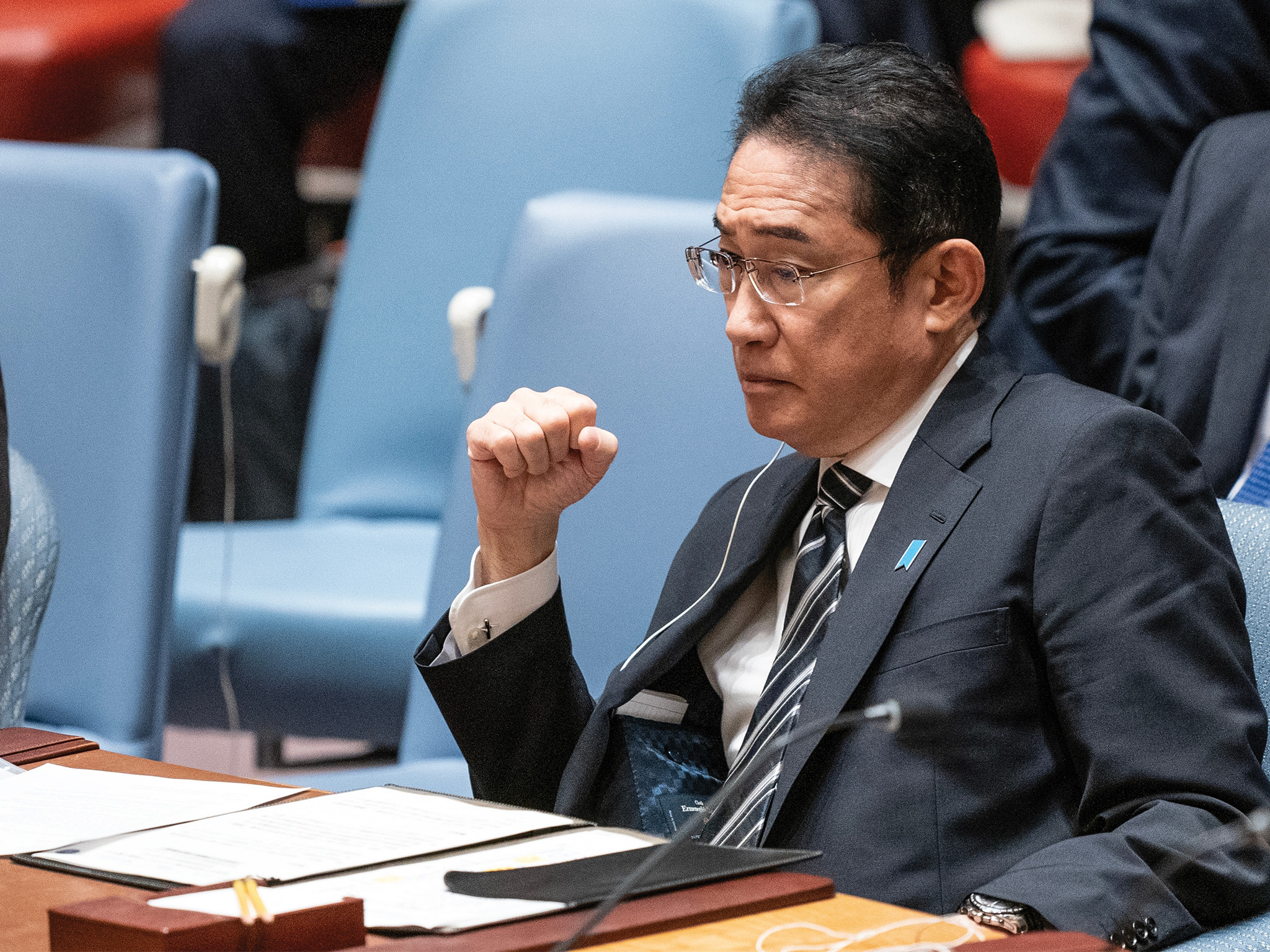
Fumio Kishida To Resign as Japan’s Prime Minister
Japan will soon have a new prime minister. On Wednesday, the current PM, Fumio Kishida announced, that he won’t be running in the ruling Liberal Democratic Party’s presidential election next month. The decision comes as approval rating for his Cabinet continue to slide following the recent political fundraising scandal. “It’s necessary,” he said, “to show the people that the Liberal Democratic Party will change. To this end, a transparent and open election, and free and open debate are important. The first easy-to-understand step that indicates that the LDP will change is for me to step back.”
Following the announcement, the United States President Joe Biden sent out a heartfelt message to Kishida. “Put simply, thanks to Prime Minister Kishida’s leadership, the future of the U.S.-Japan alliance is stronger and brighter than ever,” he said in a statement, before adding, “Kishida’s courageous leadership will be remembered on both sides of the Pacific for decades to come, and I will always be grateful to call him my friend.” Potential candidates to take over as PM include former Defense Minister Shigeru Ishiba, Digital Minister Taro Kono, Economic Security Minister Sanae Takaichi and the LDP Secretary General Toshimitsu Motegi.
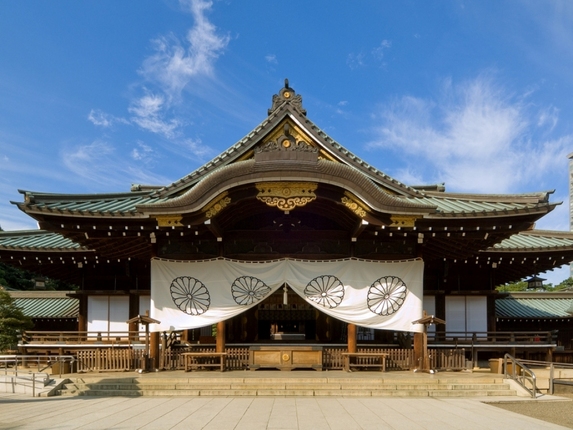
Three Cabinet Members Visit Controversial Yasukuni Shrine
A day after Kishida’s announcement, three of his Cabinet ministers visited Yasukuni Shrine to commemorate the 79th anniversary of the end of World War II. It’s a site other Asian nations see as a symbol of Japan’s wartime aggression. The shrine contains 2.4 million names of people killed in war, including 14 who were found guilty of war crimes during WWII. One of those to visit was the staunchly conservative politician Takaichi, who’s expected to run in the LDP leadership election. She was joined by the Defense Minister Minoru Kihara and the Economic Revitalization Minister Yoshitaka Shindo.
Other lawmakers who visited the shrine on Thursday included Shinjiro Koizumi and Takayuki Kobayashi, potential candidates in the LDP leadership election. Prime Minister Kishida didn’t attend, but sent a ritual offering. Neighboring countries expressed their anger at the actions of Japanese politicians. South Korea lodged a protest, urging “Japan’s responsible leaders to confront history and demonstrate genuine reflection and sincere remorse for the past through their actions.” The Chinese Foreign Ministry called on Japan to “face up to and reflect on its history of aggression and be cautious in its words and deeds on historical issues.”

Two Wrestling Golds and Ami Yuasa’s Breaking Triumph
Going into the final three days of action at the Paris Olympics, Japan was level with Great Britain and South Korea in the medal table with 13 golds. It managed to overtake both of those nations, as well as France on Friday thanks to victories for breakdancer Ami Yuasa and wrestlers Tsugumi Sakurai and Rei Higuchi. Yuasa became the first ever breaking gold medalist at the Games. The 25-year-old, known to her fans as B-girl Ami, defeated Lithuania’s Dominika Banevič in the final. The competition, however, will be best remembered for the unusual performance by Australia’s Rachael Gunn.
In women’s 57 kg freestyle wrestling, Sakurai defeated Moldova’s Anastasia Nichita 6-0 to top the podium. It was a repeat of last year’s final at the world championships, which Sakurai also won. In the same weight for men, Higuchi took the gold, coming from 2-0 down to defeat America’s Spencer Lee 4-2. On the same night, Japan’s Sorato Anraku finished second behind Britain’s Toby Roberts in men’s combined climbing. The 17-year-old Chiba Prefecture native was the last to go on the lead route. With the gold in sight, the favorite for the competition then dramatically fell.
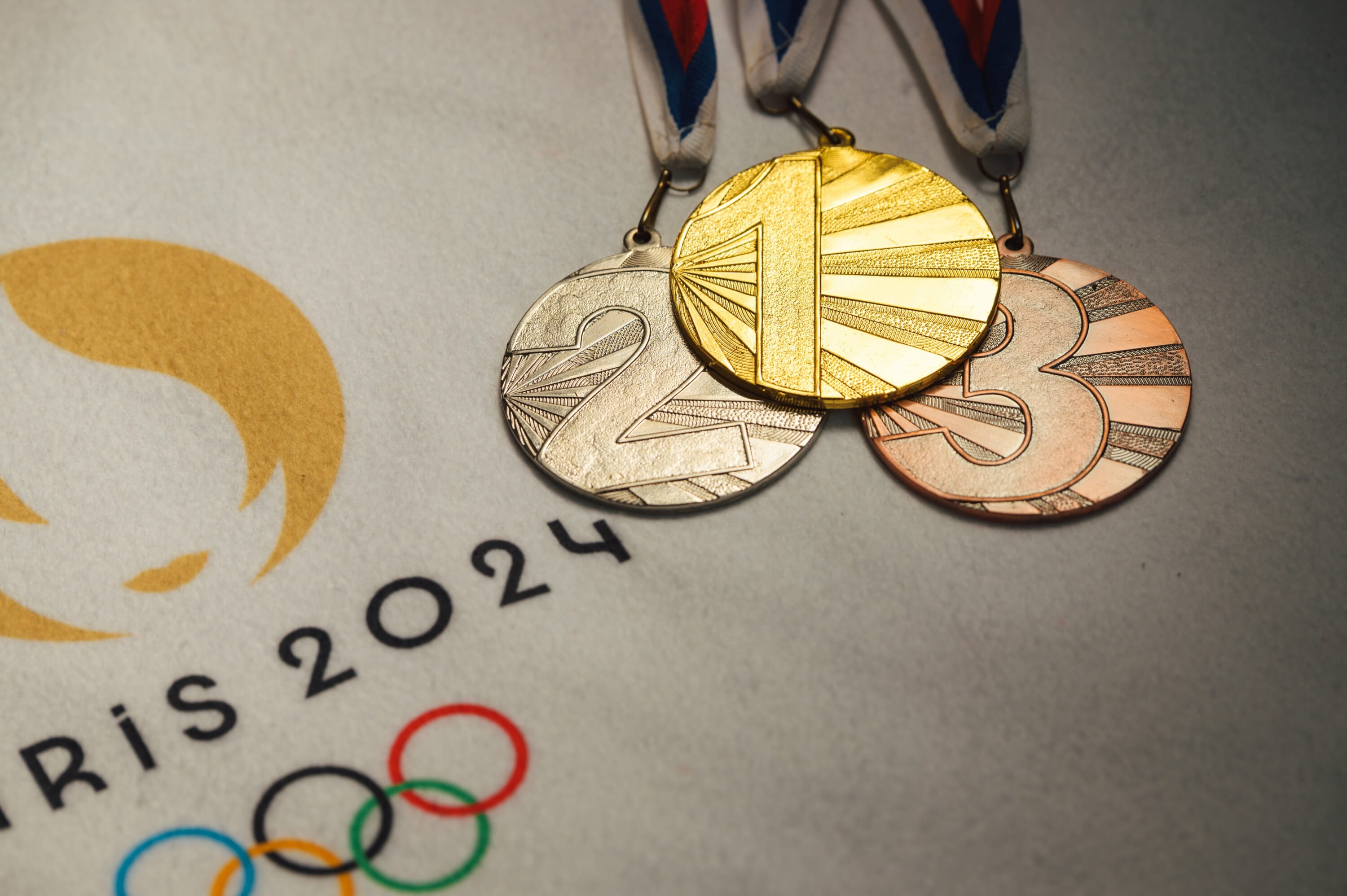
Japan Ends the Paris Olympics Third in the Table With 20 Golds
On the weekend, Japan picked up eight more medals, including four golds. Haruka Kitaguchi became the first Japanese woman to top the podium in a field event. Her first throw of 65.80 meters was enough to win the javelin final. The other three came in wrestling. Sakura Motoki defeated Ukraine’s Iryna Koliadenko by technical superiority to win the women’s 62 kg freestyle final. The following night, Kotaro Kiyooka defeated Rahman Amouzad of Iran 10-3 to take home the men’s 65 kg freestyle gold. Japan’s final triumph of the Games came from Yuka Kagami in the women’s 76 kg freestyle final.
She became the first Japanese female wrestler to win an Olympic title in the heaviest weight division after defeating Kennedy Blades of the United States. Her victory meant Japan finished with a record eight gold medals in wrestling. The nation’s overall tally of 45 medals was the highest it has achieved at an Olympics on foreign soil. With 20 golds, Team Japan leapfrogged Australia into third in the medal table. The United States finished top ahead of China. Both countries finished with 40 golds, but the U.S. had more silvers.
Related Posts
- Nankai Trough Megaquake Advisory Issued After 7.1 Magnitude Temblor
- Japanese Yen Strengthens to 148 Against the Dollar
- Calls for Dual Pricing Grow Louder in Japan As Tourist Numbers Soar
Updated On August 16, 2024

